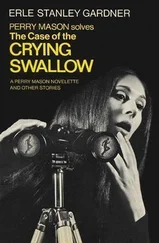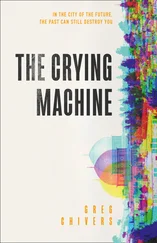"Dammit," she yelled, started the car and headed for the Berkeley campus, to find Professor Bortz.
She should have remembered the date on the book -1957. Another world. The girl in the English office informed Oedipa that Professor Bortz was no longer with the faculty. He was teaching at San Narciso College, San Narciso, California.
Of course, Odeipa thought, wry, where else? She copied the address and walked away trying to remember who'd put out the paperback. She couldn't.
It was summer, a weekday, and midafternoon; no time for any campus Oedipa knew of to be jumping, yet this one was. She came downslope from Wheeler Hall, through Sather Gate into a plaza teeming with corduroy, denim, bare legs, blonde hair, hornrims, bicycle spokes in the sun, bookbags, swaying card tables, long paper petitions dangling to earth, posters for undecipherable FSM's, YAF's, VDC's, suds in the fountain, students in nose-to-nose dialogue. She move through it carrying her fat book, attracted, unsure, a stranger, wanting to feel relevant but knowing how much of a search among alternate universes it would take. For she had undergone her own educating at a time of nerves, blandness and retreat among not only her fellow students but also most of the visible structure around and ahead of them, this having been a national reflex to certain pathologies in high places only death had had the power to cure, and this Berkeley was like no somnolent Siwash out of her own past at all, but more akin to those Far Eastern or Latin American universities you read about, those autonomous culture media where the most beloved of folklores may be brought into doubt, cataclysmic of dissents voiced, suicidal of commitments chosen-the sort that bring governments down. But it was English she was hearing as she crossed Bancroft Way among the blonde children and the muttering Hondas and Su-zukis; American English. Where were Secretaries James and Foster and Senator Joseph, those dear daft numina who'd mothered over Oedipa's so temperate youth? In another world. Along another pattern of track, another string of decisions taken, switches closed, the faceless pointsmen who'd thrown them now all transferred, deserted, in stir, fleeing the skip-tracers, out of their skull, on horse, alcoholic, fanatic, under aliases, dead, impossible to find ever again. Among them they had managed to turn the young Oedipa into a rare creature indeed, unfit perhaps for marches and sit-ins, but just a whiz at pursuing strange words in Jacobean texts.
She pulled the Impala into a gas station somewhere along a gray stretch of Telegraph Avenue and found in a phone book the address of John Nefastis. She then drove to a pseudo-Mexican apartment house, looked for his name among the U. S. mailboxes, ascended outside steps and walked down a row of draped windows till she found his door. He had a crewcut and the same underage look as Koteks, but wore a shirt on various Polynesian themes and dating from the Truman administration.
Introducing herself, she invoked the name of Stanley Koteks. "He said you could tell me whether or not I'm a 'sensitive'."
Nefastis had been watching on his TV set a bunch of kids dancing some kind of a Watusi. "I like to watch young stuff," he explained. "There's something about a little chick that age."
"So does my husband," she said. "I understand."
John Nefastis beamed at her, simpatico, and brought out his Machine from a workroom in back. It looked about the way the patent had described it. "You know how this works?"
"Stanley gave me a kind of rundown." He began then, bewilderingly, to talk about something called entropy. The word bothered him as much as "Trystero" bothered Oedipa. But it was too technical for her. She did gather that there were two distinct kinds of this entropy. One having to do with heat-engines, the other to do with communication. The equation for one, back in the '3o's, had looked very like the equation for the other. It was a coincidence. The two fields were entirely unconnected, except at one point: Maxwell's Demon. As the Demon sat and sorted his molecules into hot and cold, the system was said to lose entropy. But somehow the loss was offset by the information the Demon gained about what molecules were where.
"Communication is the key," cried Nefastis. "The Demon passes his data on to the sensitive, and the sensitive must reply in kind. There are untold billions of molecules in that box. The Demon collects data on each and every one. At some deep psychic level he must get through. The sensitive must receive that staggering set of energies, and feed back something like the same quantity of information. To keep it all cycling. On the secular level all we can see is one piston, hopefully moving. One little movement, against all that massive complex of information, destroyed over and over with each power stroke."
"Help," said Oedipa, "you're not reaching me."
"Entropy is a figure of speech, then," sighed Nefastis, "a metaphor. It connects the world of thermo-dynamics to the world of information flow. The Machine uses both. The Demon makes the metaphor not only verbally graceful, but also objectively true."
"But what," she felt like some kind of a heretic, "if the Demon exists only because the two equations look alike? Because of the metaphor?"
Nefastis smiled; impenetrable, calm, a believer. "He existed for Clerk Maxwell long before the days of the metaphor."
But had Clerk Maxwell been such a fanatic about his Demon's reality? She looked at the picture on the outside of the box. Clerk Maxwell was in profile and would not meet her eyes. The forehead was round and smooth, and there was a curious bump at the back of his head, covered by curling hair. His visible eye seemed mild and noncommittal, but Oedipa wondered what hangups, crises, spookings in the middle of the night might be developed from the shadowed subtleties of his mouth, hidden under a full beard.
"Watch the picture," said Nefastis, "and concentrate on a cylinder. Don't worry. If you're a sensitive you'll know which one. Leave your mind open, receptive to the Demon's message. I'll be back." He returned to his TV set, which was now showing cartoons. Oedipa sat through two Yogi Bears, one Magilla Gorilla and a Peter Potamus, staring at Clerk Maxwell's enigmatic profile, waiting for the Demon to communicate.
Are you there, little fellow, Oedipa asked the Demon, or is Nefastis putting me on. Unless a piston moved, she'd never know. Clerk Maxwell's hands were cropped out of the photograph. He might have been holding a book. He gazed away, into some vista of Victorian England whose light had been lost forever. Oedipa's anxiety grew. It seemed, behind the beard, he'd begun, ever so faintly, to smile. Something in his eyes, certainly, had changed…
And there. At the top edge of what she could see: hadn't the right-hand piston moved, a fraction? She couldn't look directly, the instructions were to keep her eyes on Clerk Maxwell. Minutes passed, pistons remained frozen in place. High-pitched, comic voices issued from the TV set. She had seen only a retinal twitch, a misfired nerve cell. Did the true sensitive see more? In her colon now she was afraid, growing more so, that nothing would happen. Why worry, she worried; Nefastis is a nut, forget it, a sincere nut. The true sensitive is the one that can share in the man's hallucinations, that's all.
How wonderful they might be to share. For fifteen minutes more she tried; repeating, if you are there, whatever you are, show yourself to me, I need you, show yourself. But nothing happened.
"I'm sorry," she called in, surprisingly about to cry with frustration, her voice breaking, "It's no use." Nefastis came to her and put an arm around her shoulders.
"It's OK," he said. "Please don't cry. Come on in on the couch. The news will be on any minute. We can do it there."
Читать дальше












